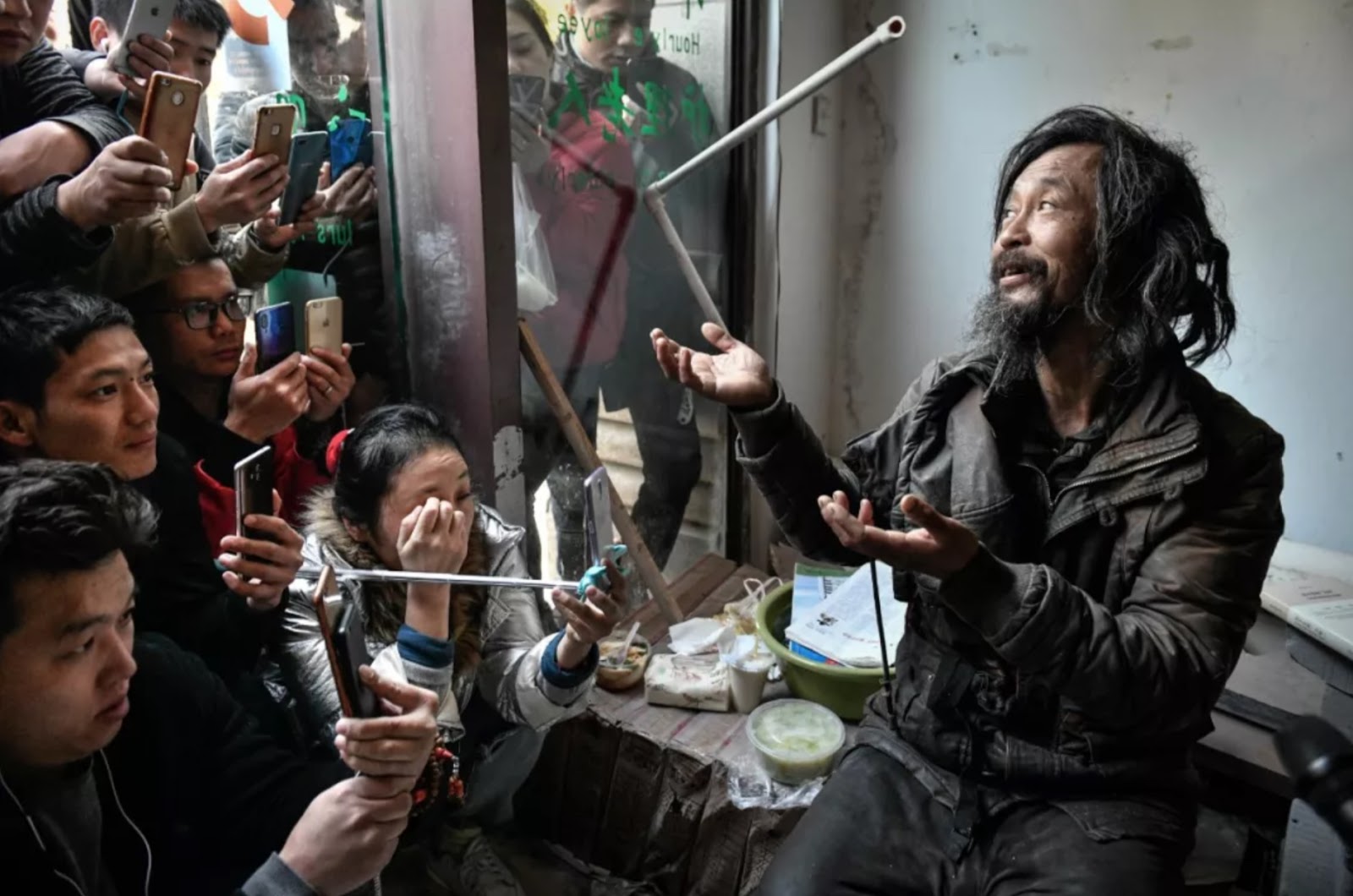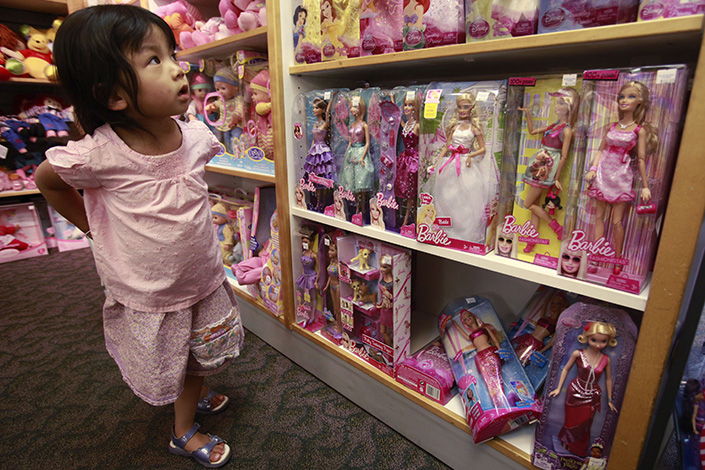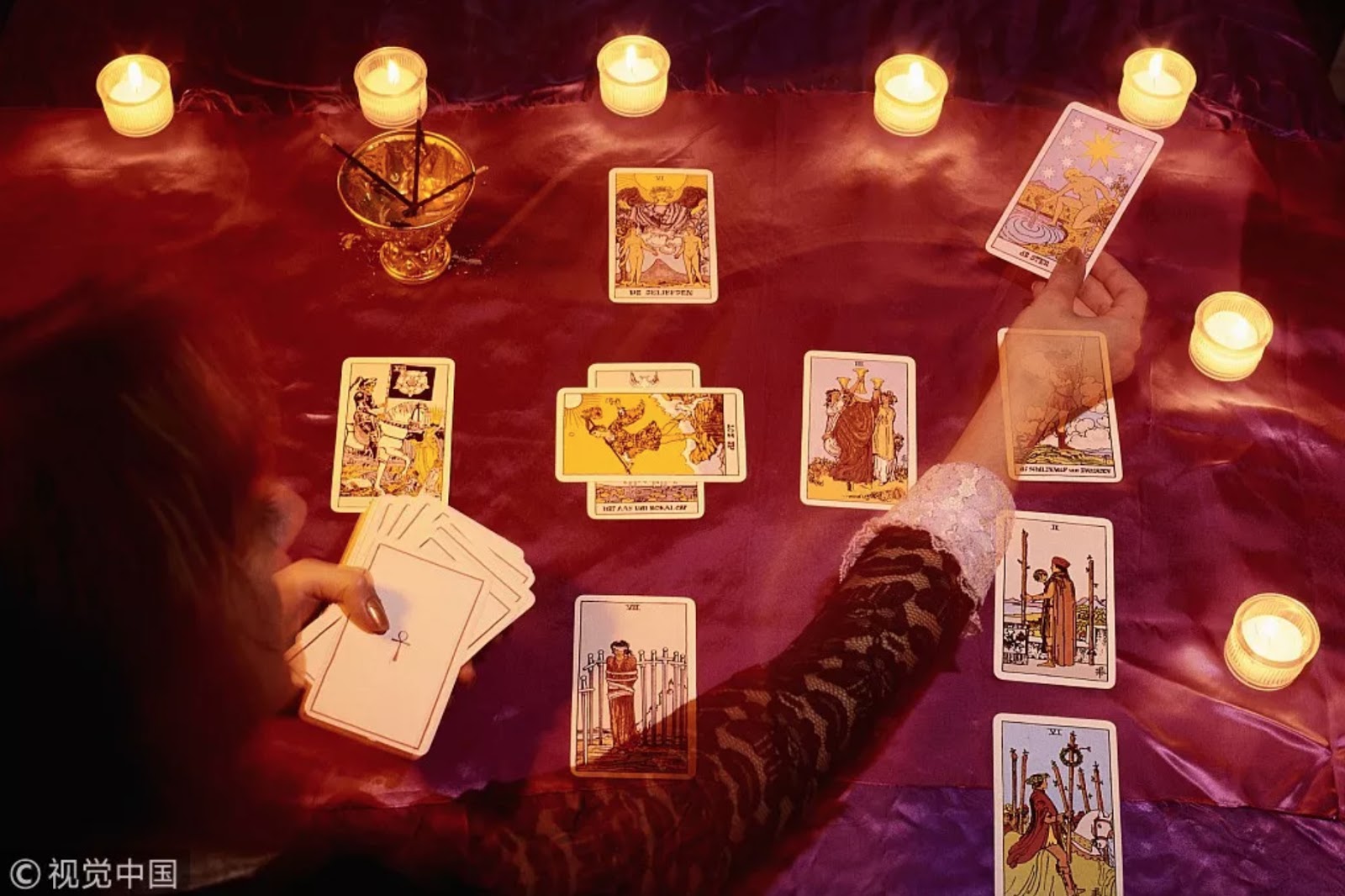Chinese Corner: The rise of Shanghai’s ‘Vagrant Master’ and what it says about our internet
Chinese Corner: The rise of Shanghai's ‘Vagrant Master’ and what it says about our internet

Chinese Corner is Jiayun Feng’s weekly review of interesting nonfiction on the Chinese internet.
The internet is making people sick and that’s why this story exists
“流浪大师”爆红后的72小时
72 hours after “Vagrant Master” rose to sudden fame
By 林源 Lín Yuán
March 26, 2019
To call the rise of Shěn Wēi 沈巍 meteoric is an understatement. Seemingly overnight, the 52-year-old scavenger in Shanghai became a sensation on the Chinese internet, after a video of him talking in-depth about Chinese literature and philosophy went viral.
Having spent more than 10 years living on the streets, Shen never wanted attention. But his virality quickly attracted a wave of journalists — not to mention fabulists seeking to capitalize on Shen’s newfound celebrity by concocting exaggerated or fake backstories.
In this mind-bending article, journalist Lin Yuan manages to stay above the fray while detailing this saga. This is one of those idiosyncratic and alarming stories that will leave you perplexed long afterwards, leaving only one conclusion: getting the hell off the internet is probably good for one’s sanity.
Related reading:
- 跟“沈大师”在魔都黑夜漫游 A night in Shanghai with “Master Shen”
- 这七天,“大师”沈巍已经把网红看透了 “Master” Shen Wei saw through internet celebrities in 7 days
- 沈巍 与读书有关的日子 Shen Wei’s days about reading
- “流浪大师”爆红七日后:大师去流浪,留下疯子在直播 7 days after “Vagrant Master” rose to sudden fame: The master has departed, leaving lunatics live-streaming

Why is it strangers who cry the most at Chinese funerals?
葬礼上为什么陌生人哭得最凶
Why strangers cry the most at funerals
By 何颜 Hé Yán
April 5, 2019
Wild things happen at Chinese funerals in rural areas. One moment, complete strangers are delivering emotion-filled eulogies around the coffin, punctuated by loud wailing and dramatic gestures, inviting others to join in; the next, a group of strippers is dancing to an audience that includes children, who are likely struggling to make sense of the performance.
The dancers and actors who specialize in crying are professional mourners hired by Chinese families. The tradition can be traced back to ancient times. And despite the government’s intensified crackdown on such outlandishness in recent years, the practice remains resilient in rural China, where professional mourners are considered a good way to energize the mourning crowd and flaunt the wealth of the deceased’s family.

Barbie’s China problem
芭比娃娃为何没能在中国成功?
Why didn’t Barbie dolls succeed in China?
By 刘雨静 Liú Yǔjìng
March 27, 2019
Barbie, the iconic American doll whose cultural significance in the West has greatly transcended its primary function as a toy for girls, never found its footing in China. Two years after a grand opening in Shanghai, Barbie’s first Chinese flagship store closed in 2012 — this despite a concerted marketing push by the toy’s manufacturer, Mattel
Setting aside prices, the root of Barbie’s China problem, as author Liu Yujing argues, stems from the ideological clash between the revolutionary messages embodied by Barbie dolls and what most Chinese parents are essentially looking for in toys. In the early years of Barbie’s existence, the brand’s fixation on narratives like beauty and romance, specifically the doll’s perfect body, her glamorous wardrobe, and the fact that she has a boyfriend, failed miserably to resonate with Chinese parents, who thought it was inappropriate to let children play with toys with adult features. But in the years afterwards, when Mattel tried hard to expand Barbie’s universe into hundreds of doll varieties in different body types and professions, many of which are conventionally seen as male-dominated, the empowering messages behind the plastic dolls, again, got lost in cultural translation, as Chinese parents preferred “intelligence” toys that could bring direct educational benefits.

A fortunate time for fortune-tellers
算命先生的网上钱途
Fortune-tellers’ booming online business
By 罗欢欢 Luó Huānhuān
March 16, 2019
Setting aside the question of whether fortune-tellers are legitimate, business for them is soaring, especially on the Chinese internet. While it’s hard to pinpoint when and why the centuries-old practice had a modern revival, the fortune-telling industry has seen a boom in the form of mystical apps and online communities, where self-proclaimed “professional” fortune-tellers operate like ride-hailing drivers or other players in the gig economy.
With venture capital money pouring in, the bar for entry has been getting lower and lower, exacerbating the industry’s already shaky reputation as a domain of grifters.
How Hong Kong’s celebrity gossip magazines take tabloid journalism to the next level
香港八卦杂志嘴臭实录
The scandalous history of Hong Kong’s celebrity gossip magazines
By 简晓君 Jiǎn Xiǎojūn
March 15, 2019
If there is one rule that every celebrity gossip magazine in Hong Kong feels compelled to obey, it’s this: never play by the rules. Unbounded by any journalism ethics, these tabloids love to push the envelope — and truth — with the sole purpose of satisfying their readers’ insatiable curiosity about the famous and powerful. Since the establishment of Mingbao Weekly 明报周刊 in the 1960s, arguably the first celebrity magazine in the city that reached a wide readership, Hong Kong’s gossip landscape has rapidly swelled in the past few decades, leading to a rash of problems, including the invasion of privacy and persistent sexist coverage of female stars.

Things that I read and loved from last week:
- 北京阿姨都几套房了,为何还要捡垃圾 Beijing’s ayi’s own several homes. Why are they still collecting garbage?The shadow of poverty is long, and envelops a generation of Chinese workers.
- 为孩子上户口的非婚妈妈 Unmarried mothers who try to obtain hukous for their childrenHukou, China’s household-registration system, has long been criticized for its blatant discrimination against single women, who have to face myriad obstacles to getting their babies properly recognized as Chinese citizens with access to public resources. “In the grand scheme of things, kids are the most innocent,” an unmarried mom said.
- 两个世界里的阎连科 Yan Lianke in two worldsAn in-depth profile of Yan Lianke, one of the most controversial Chinese novelists alive.
- 中国偶像选秀十五年 Chinese talent shows in 15 years
- 美国人是怎样营销中国白酒的? How do Americans market Chinese baijiu?











